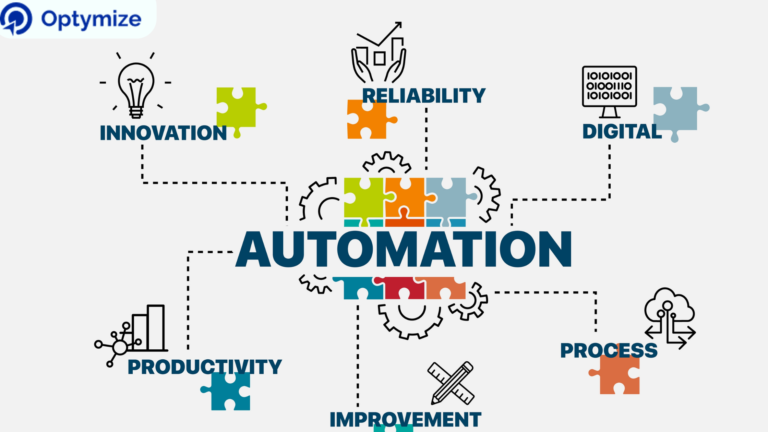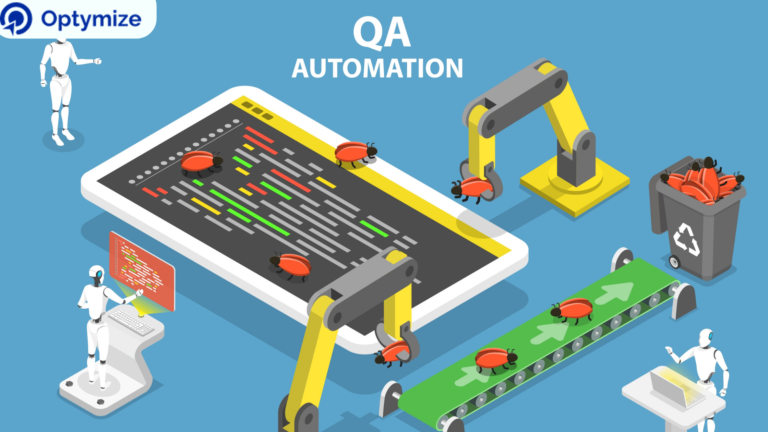Table of Contents
With the rising complexity of modern software, human testers are finding it increasingly difficult to detect problems in programs or websites. As a result, more businesses are beginning to adopt QA automation services for testing rather than depending solely on human approaches. As a result, many companies rely on QA automation to test their software more effectively and frequently than manual testers.
The scope of QA automation is extending to cover test planning, test case design, test case creation, and test case management in addition to execution.
It’s no wonder that many businesses use automated testing to speed up processes and increase the efficiency of the quality assurance (QA) process. While manual testing will always be necessary, automation has the potential to save both time and money for both startups and large organizations.
We’ll look at automated QA, how it’s used, and how it might benefit your company.
What is QA Automation?
QA Automation refers to automated testing technologies that perform software testing and report on the results, as part of the software development life cycle (SDLC). Many of the time-consuming tasks that manual testers used to conduct are now handled by automated testing. It’s particularly useful for continuous integration and delivery, which entails developing, testing, and deploying software daily rather than in stages.
Previously, coding and testing were considered different stages of software development. Still, automatic QA allows for more frequent testing, making it easier to identify problems as they arise.
What is the Difference Between Manual and QA Automation Testing?
Manual testers adhere to a written test plan and report errors to developers, whereas automated QA testing relies solely on specialized QA automation tools to execute test cases and generate results. Both tactics can be used at the same time, although each performs better in a different context.
Manual testing is ideal for evaluating the user experience (UX) and the appearance and feel of an app, which can only be done by a human. QA automation Frameworks for automated testing are created by testers. It is appropriate for large-scale software testing and, in most circumstances, is more accurate than manual testing. The most significant benefit is that it saves time, especially during regression testing, which can be difficult for manual testers.
Because manual testing cannot be recorded, but automation test scripts can be reused, automated QA is a godsend for repeat execution testing and development cycles.
QA Automation Job Description
A good job description always captivates the interest of potential candidates in advertised roles, but developers who are just starting their journey
As QA engineers should be aware of what a QA engineer’s job description contains, and how it portrays the ideal candidate for the role, to understand their requirements and begin their preparations accordingly. The job description that follows will provide prospective QA engineers with a good understanding of what a firm expects from a candidate.
Various Positions of QA Automation Engineers
It improves customer service procedures and removes any faults or problems a product may have, IT automation has become a cornerstone of many companies. As a result, high-quality items have fewer faults and are delivered more quickly. A QA automation engineer creates automated tests to validate the functioning of online and mobile apps, writes scripts, installs testing protocols, and implements efficient test automation solutions.
Engineer in test automation
A test automation engineer must have strong coding abilities to build and implement numerous automated solutions. Both verify that the program satisfies architectural requirements, create and automate software validation tests, assures the system’s high quality, and works with firmware developers and validation engineers.
The lead of the QA team
A QA lead creates and maintains procedures and processes, directs QA teams, organizes development teams, and oversees testing schedules.
Engineer for performance testing
Excellent software performance fosters user loyalty, high conversion rates, and continual transactions. A QA automation engineer’s role is to provide advice on efficient performance testing strategies throughout the entire software development cycle, implement the QA automation framework, create test plans based on business needs and customer requirements, and check the results.

What is the QA Automation Engineer Skills?
A QA automation specialist should be familiar with networks, hardware, web and desktop operating systems, as well as robotics, analytics, and artificial intelligence (AI). However, good technical skills are not always essential when selecting a candidate for the position of engineer, because a person with all the answers may not be able to work well with other team members or adapt to new processes.
Excellent coding abilities
A broad grasp of computer science and good intermediate or advanced expertise in at least one programming language is required to develop a viable automation test script. This is very useful when communicating with the developer and doing in-depth feature testing. Although there is scriptless based testing in automation, it is impossible without a broad grasp of the art of coding.
QA automation Framework design ability
Automation QA engineers are in charge of creating a strong, streamlined QA automation framework that discovers problems in addition to other routine activities. In such instances, testers frequently have the project completed by the developer, which can be completed in any language. Automation engineers should have a basic grasp of this coding language or study it.
Understanding of manual testing and quality assurance
Autotests are run by software that just does what is instructed. When anything goes awry, the human eye can immediately identify it. However, automated scripts still require maintenance by a tester with a thorough grasp of fundamental operations.
Understanding of development techniques
Learning automated testing is critical, but so is knowing how to arrange testing methods within a team and interact with your customer. Understanding development approaches such as Scrum, Agile, and Kanban is crucial for job advancement.
Analytical and logical abilities
Last but not least, there is thinking. Yes, the thinking of an automation QA engineer is distinct. They are not coders, but they are also not in the mindset of a manual tester. They should understand what the critical priority is for a product. Automation testers should also have developed logical and abstract thinking skills to be able to analyze, enjoy complex tasks, and be diligent and detail oriented.
Good knowledge of QA automation tools
The automated testers should have a thorough understanding of the market’s available QA automation tools, which will help to optimize the entire testing process. The tester should have a solid understanding of and exposure to automation test technologies to succeed in the field of automation testing.
The ability to choose the appropriate tool for a project is another crucial skill in this context. The tester should be able to classify whether certain test cases can be automated or not based on the automated testing tool selected.
Once the tester is comfortable with QA automation tools, he may make use of his automation testing skills to develop test cases that ensure high test coverage and expedite the test execution process.
An expert in agile, DevOps, and continuous delivery
With the advent of agile and DevOps methodologies, automation testing is becoming more popular in the market. Since agile methodologies involve frequent changes, automation testing is essential. Automated analysts can automate a module’s test scripts to respond to frequent customer-induced requirement changes.
QA Automation Interview Questions and Answers for Testing
To get a sense of what to expect in QA automation interview questions, let’s look at some sample QA automation testing interview questions and answers:
1) What exactly is automation?
Automation is any activity that reduces the need for human labor.
2) What exactly is automation testing?
Automation testing is the practice of utilizing specific software tools or scripts to execute testing chores such as inputting data, performing test stages, comparing findings, and so on.
3) What exactly can you automate?
A suite of regression tests
A suite of smoke and sanity tests
Build distribution
Creating test data
Testing APIs and methods beneath the GUI is automated.
4) How do you discover test cases that are amenable to automation?
The most crucial step towards automation is identifying suitable test cases for automation.
5) Can you attain complete automation?
It would be difficult to accomplish 100% automation since there would be numerous edge test cases and other instances that would be run seldom. Automating such instances will not provide value to the automated suite.
6) How does one determine which tool to employ for automation testing in their projects?
To determine the tool for Automation testing in your project, do the following:
a) Thoroughly understand your project requirements and determine the testing scenarios you wish to automate.
b) Look for a list of QA automation tools that meet the needs of your project.
c) Determine your automation tool budget. Choose the QA automation tools that are within your budget.








